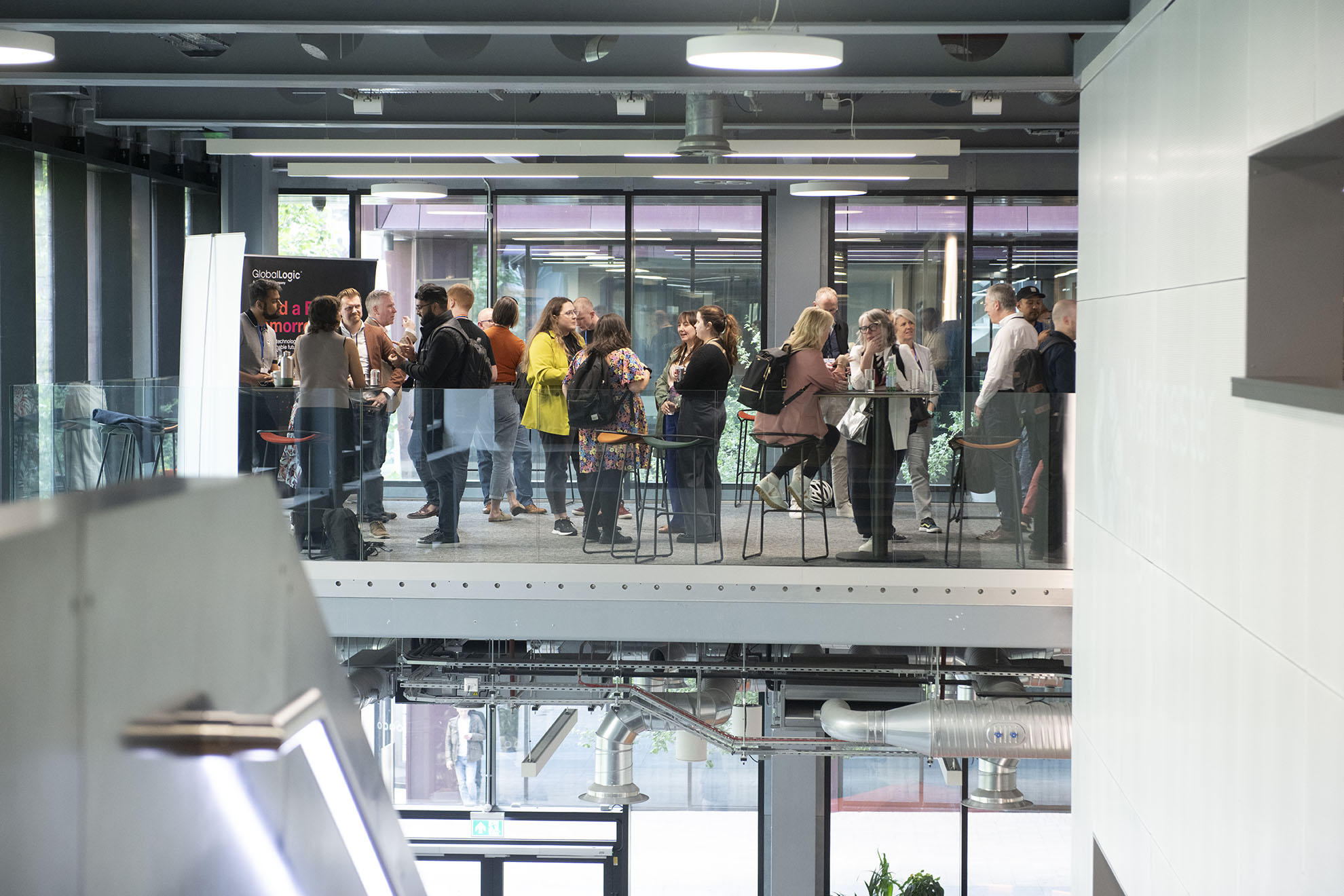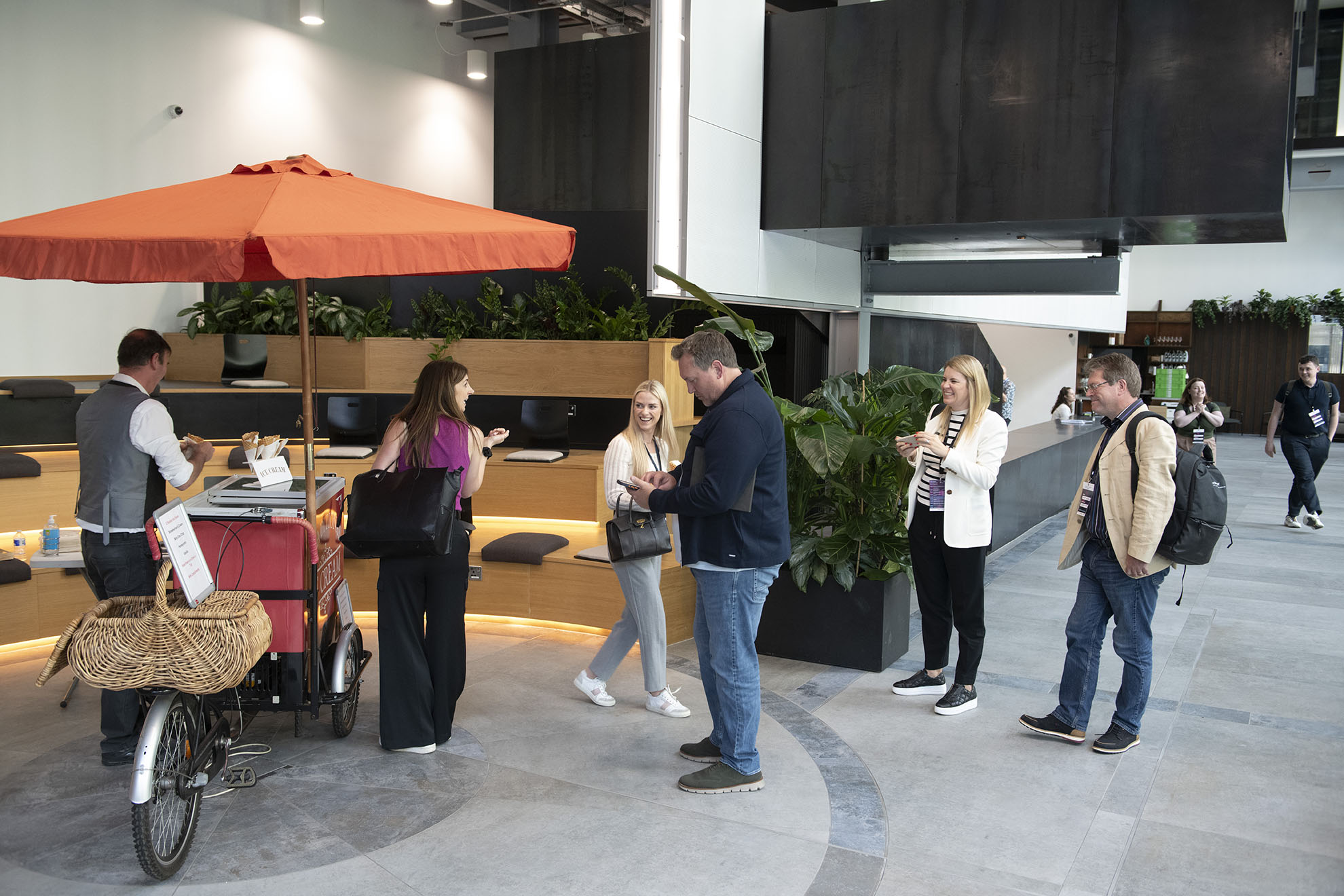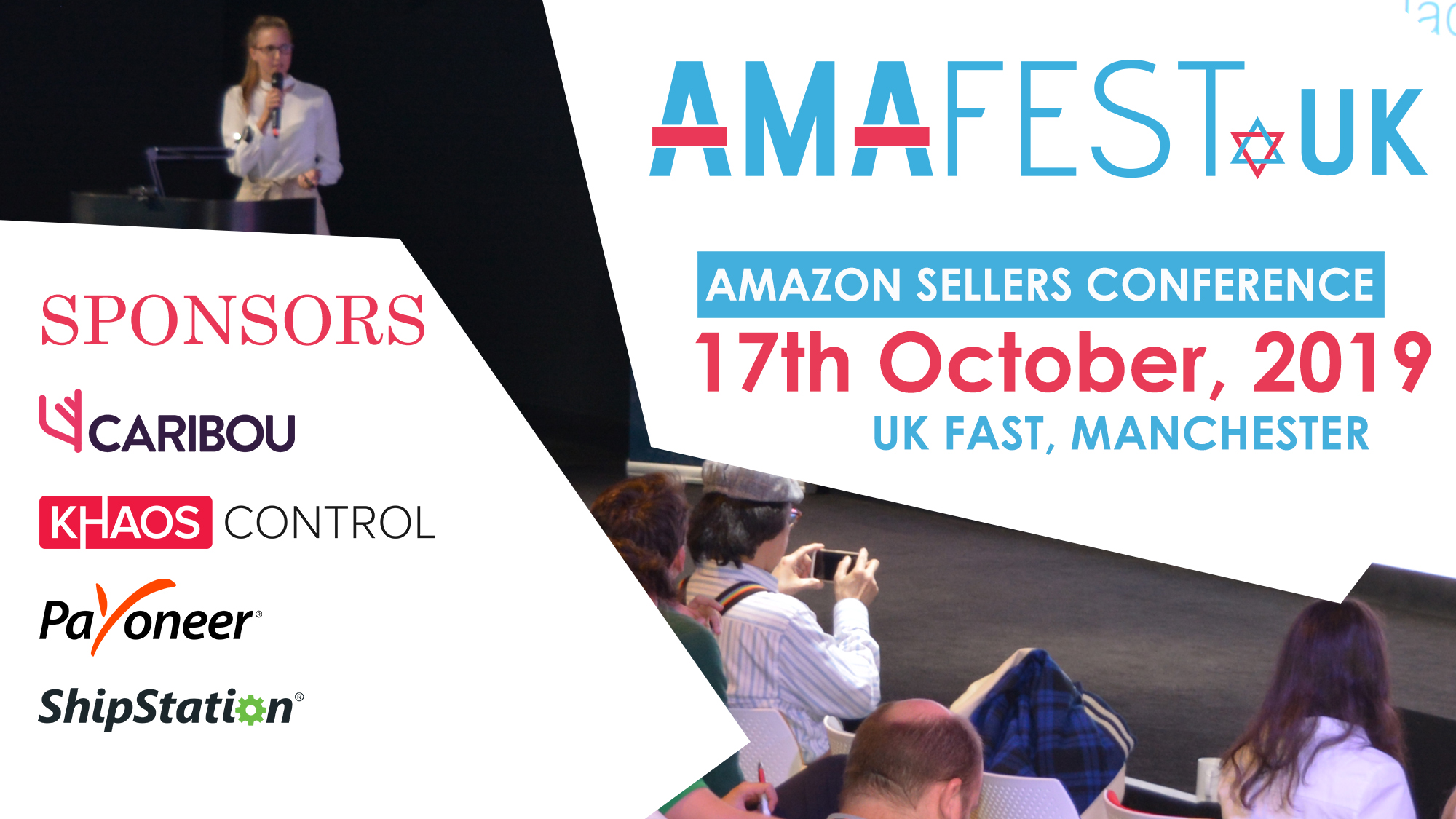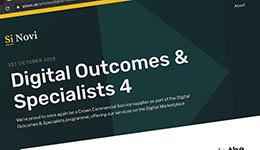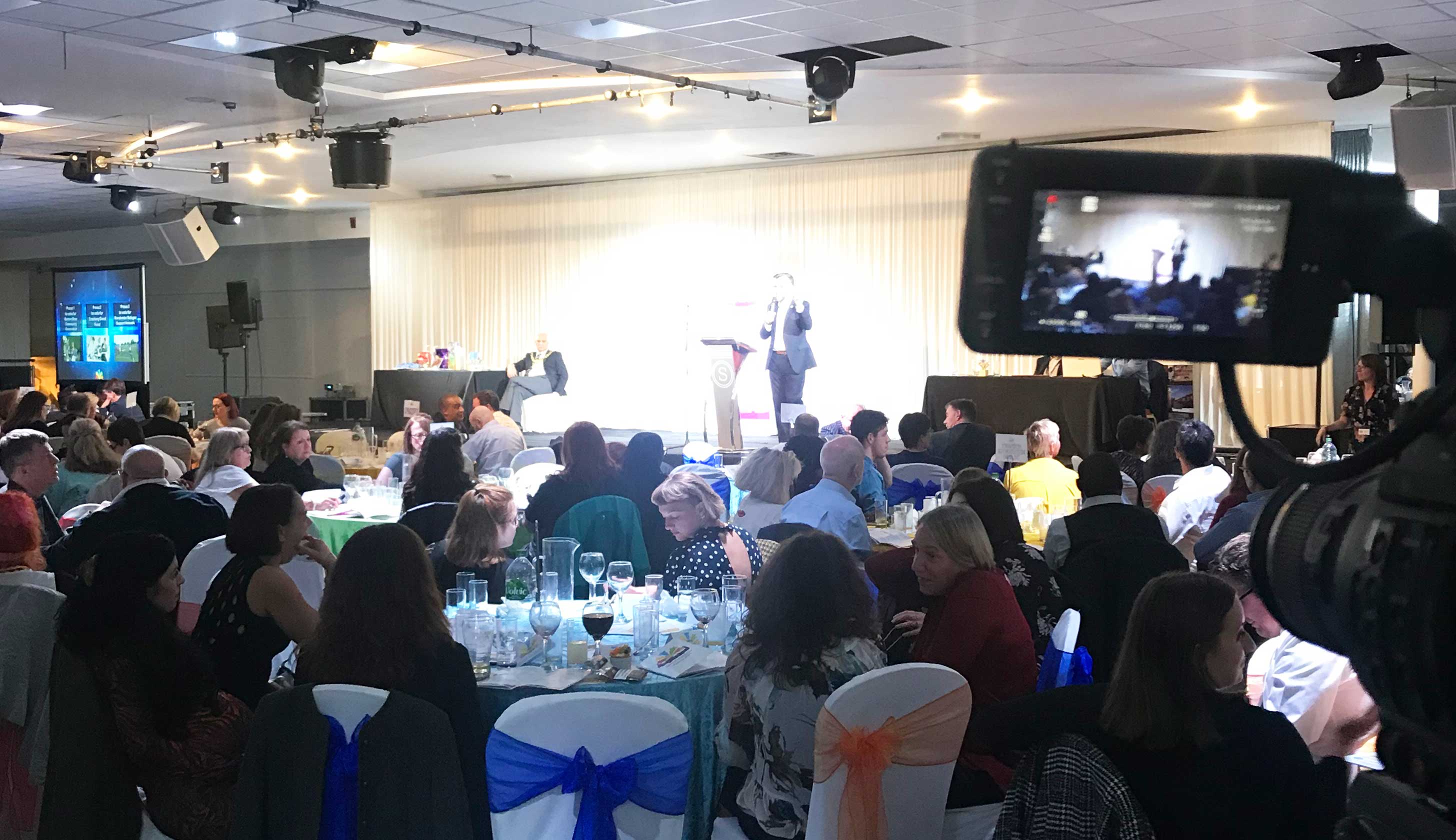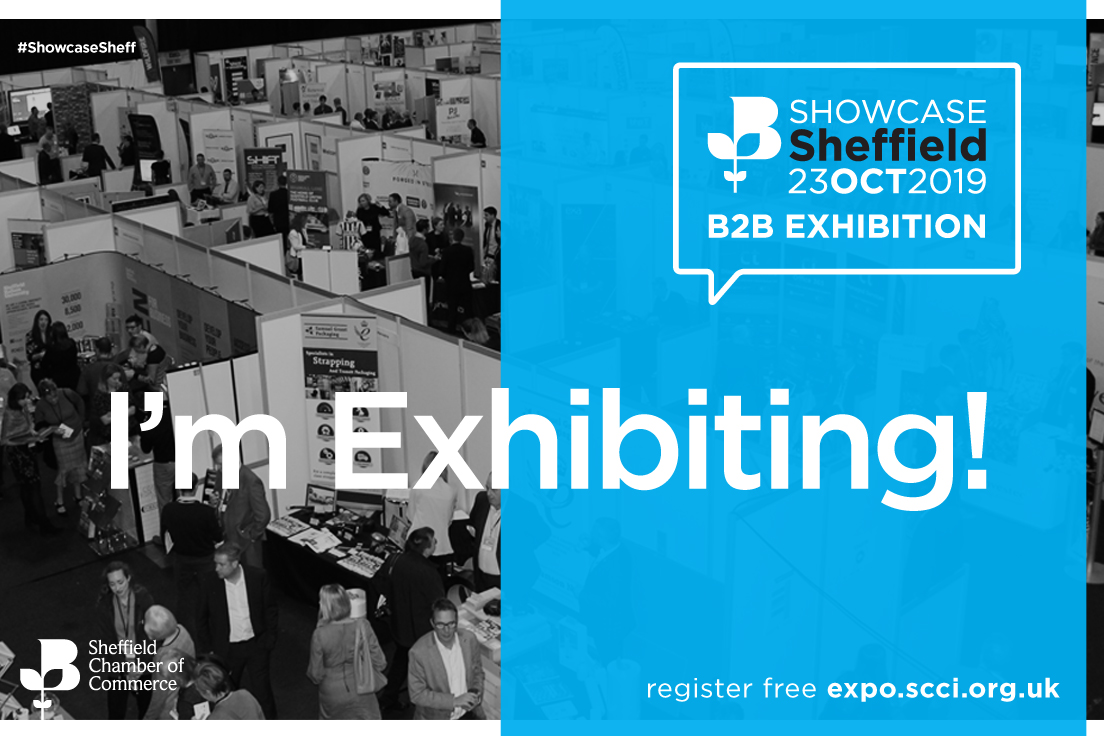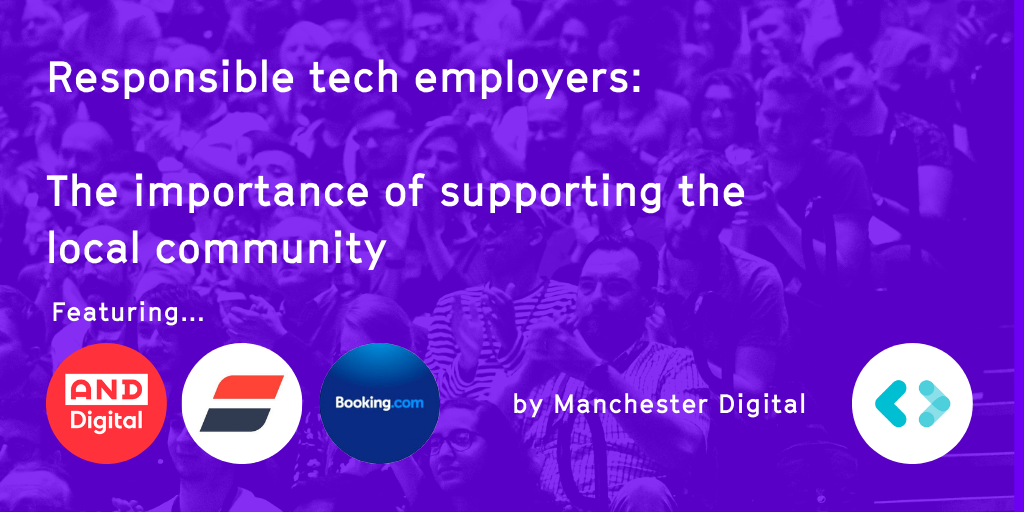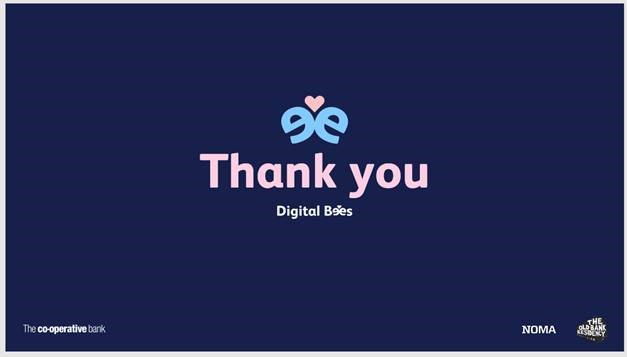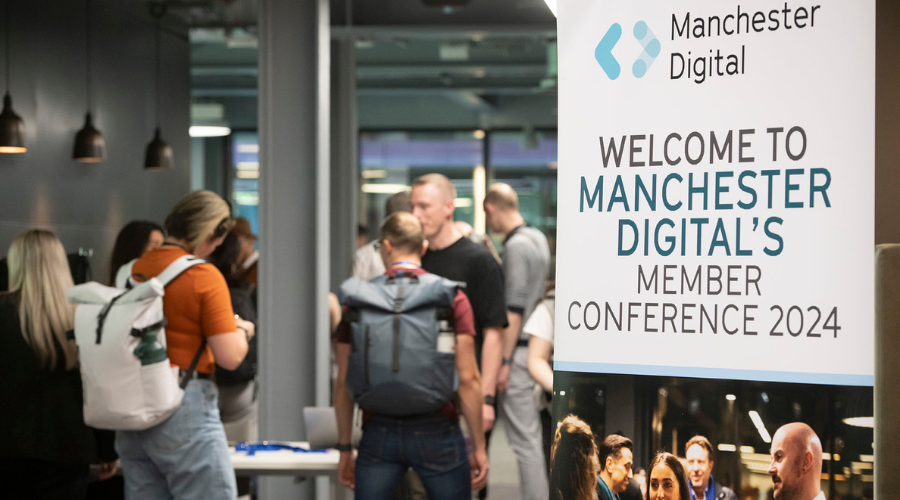
Ethics in tech was the theme of Manchester Digital’s annual Member Conference, which took place at Bruntwood’s No.1 Circle Square on Thursday 20th June 2024. The event was sponsored by GlobalLogic, Manchester Metropolitan University and Bruntwood SciTech.
MD Katie Gallagher OBE welcomed the room of Manchester Digital members to the conference, which also included the members AGM.
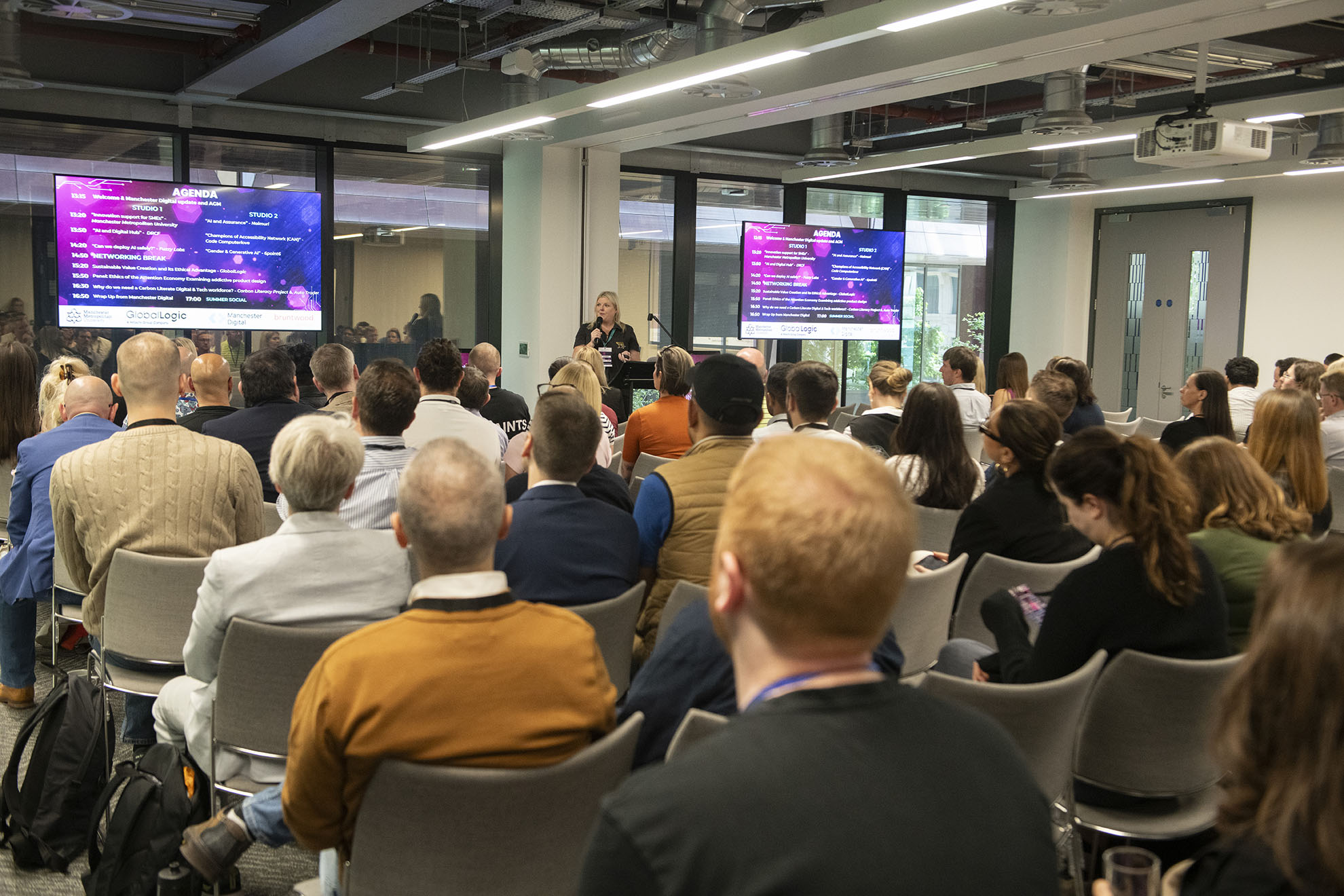
Thomas Shipley, Engineering Manager at GlobalLogic, gave a talk about sustainable value creation and its ethical advantage. He explained that while technology moves fast, organisations move slowly, so it’s impossible to keep ahead of tech. “Think holistically and ethically in order to decide which tech to move ahead with. Ethical and sustainable practice is a source of competitive advantage.”
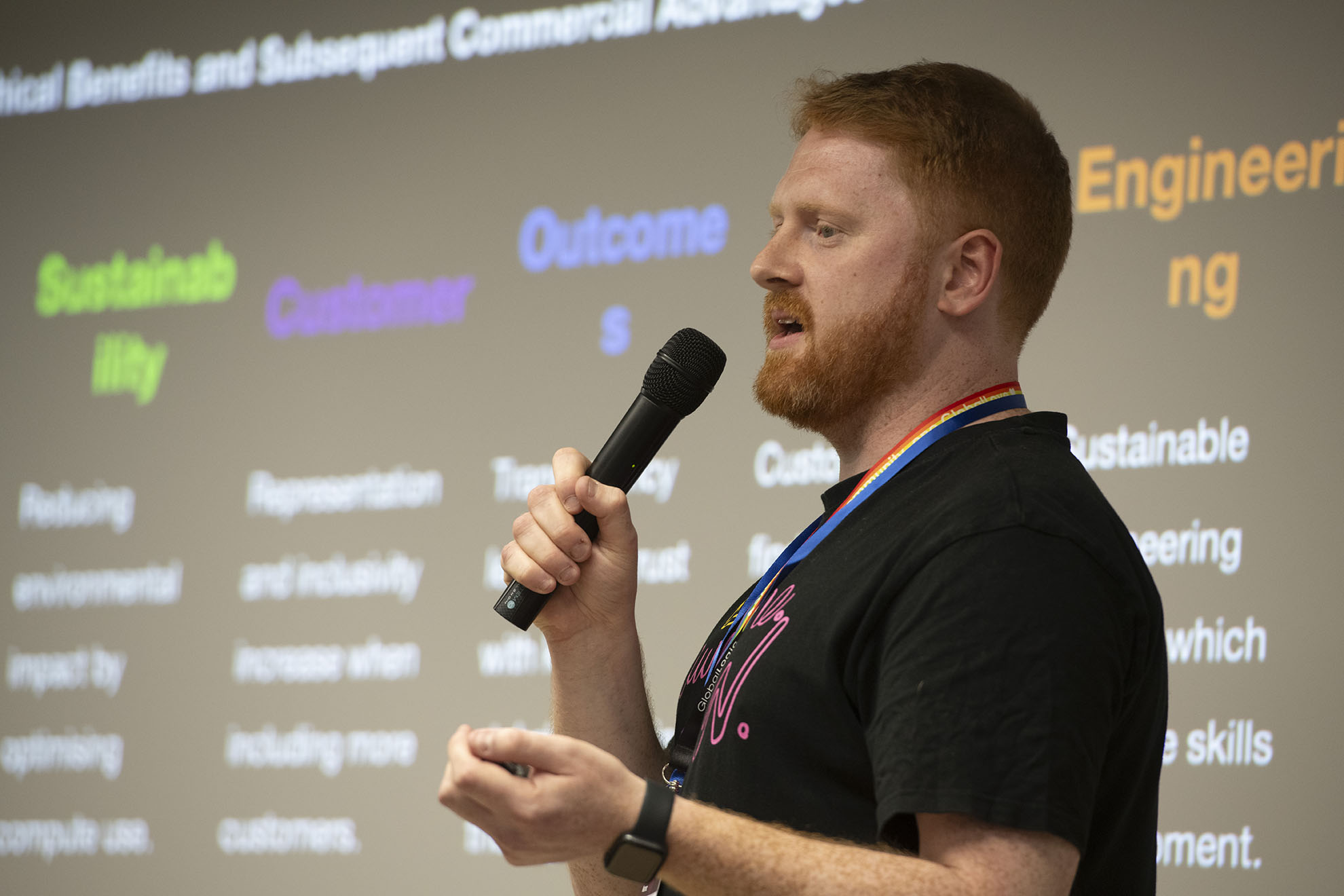
Manchester Digital and Auto Trader announced they were working on a new Carbon Literacy Programme for the tech industry. This was the topic of a panel discussion which included: Natalia Phipps, Head of Advocacy and Ravi Vekaria, Digital and Tech Sector Coordinator, both from the Carbon Literacy Project, Ellie Powell, Community Executive at Manchester Digital and David Williams, Principle Developer at Auto Trader.
Ellie said: “Manchester Digital are in a fortunate position in that we have great relationships with businesses across the industry, as a membership organisation, and sustainability is really important to our members. When we heard about the Carbon Literacy Trust, we thought it was a no brainer. Developing a toolkit is a great first step for businesses to share with their clients and employees in order to make a wider impact.”
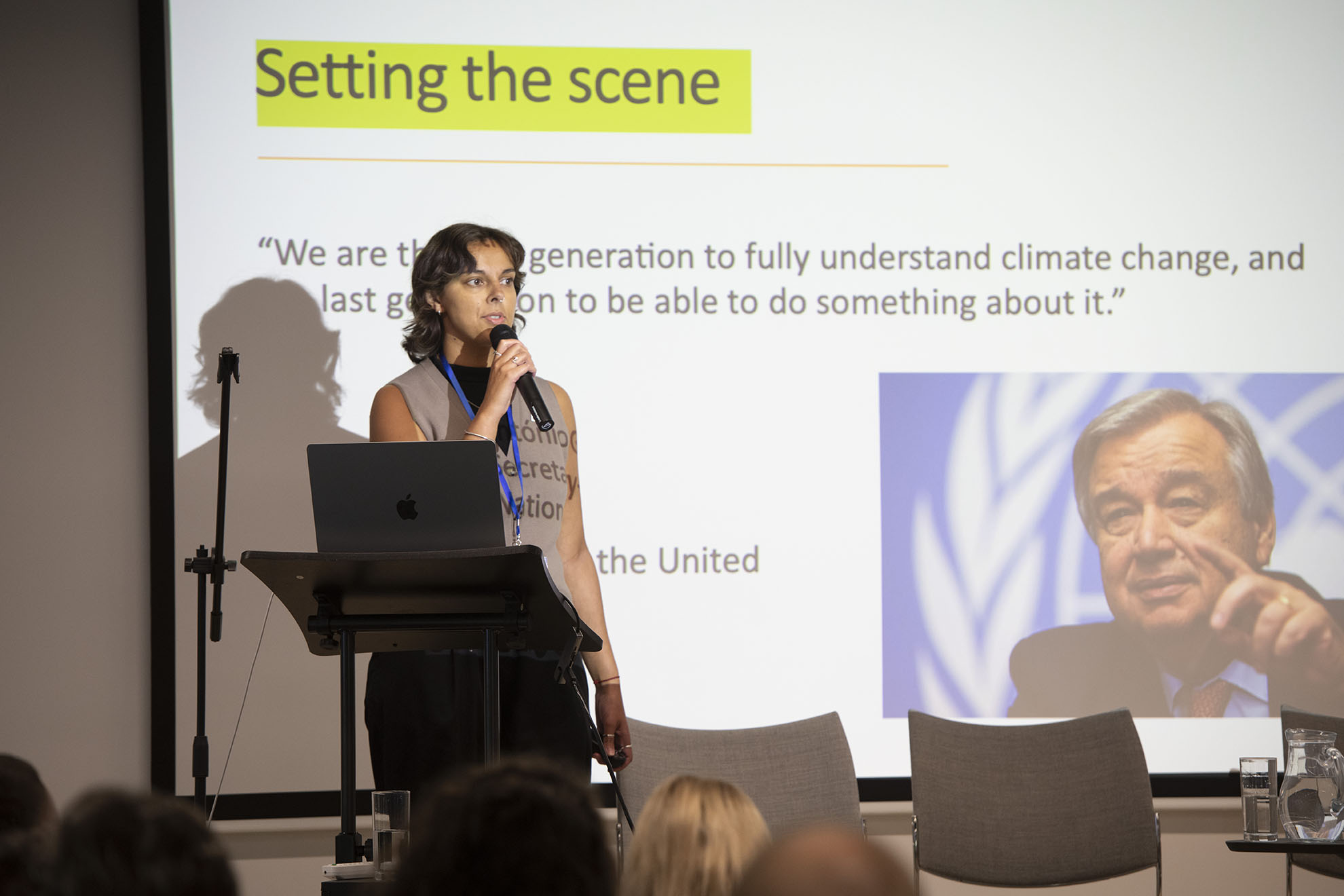
We also heard from a panel titled 'Ethics of the Attention Economy Examining addictive product design' chaired by Lisa Talia Moretti, Digital Sociologist (User Research Principal), from AND Digital, Liv Bradbury, Analyst from Deloitte, Jemma Twigg, UX Designer at AJ Bell and Andy Tebb, head of engineering centre, from GlobalLogic.
The discussion centred around dark patterns, which is used to make tech, such as social media apps, addictive and exploit psychological vulnerabilities. Jemma said, “It’s good to educate yourself on what dark patterns are so you’re not being convinced to use them unknowingly. The developer of unlimited scroll says that he now regrets it.”
Andy added that ethical guidelines were really important for a business, but ultimately you’re still competing against other businesses who may not have the same ethics. Liv believed that current regulations were not enough, and all agreed that other industries, such as finance, were more heavily regulated and this did not stifle creativity.
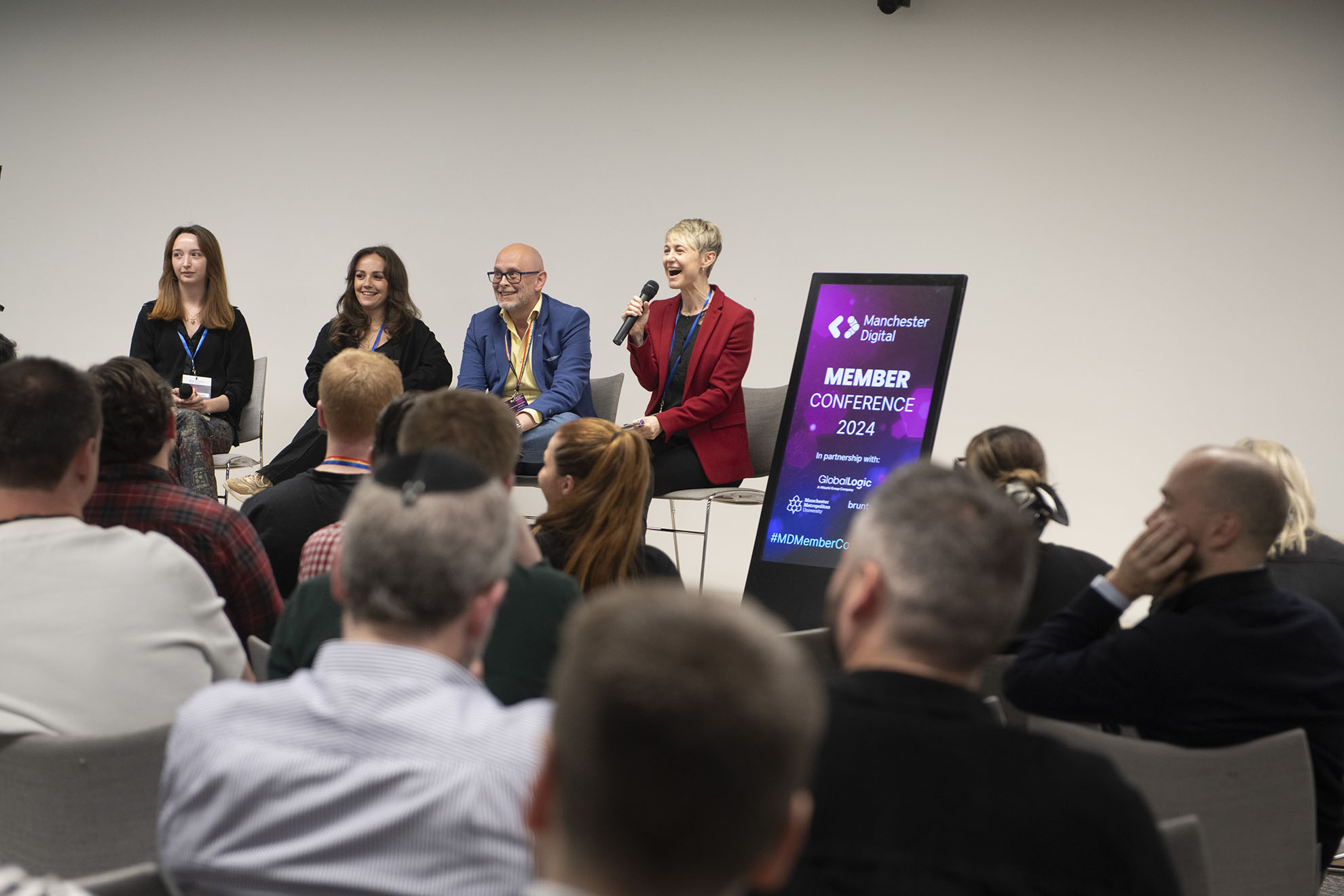
Here’s a round up of the other afternoon talks, which ran across two tracks:
Studio 1: "Innovation support for SMEs" - Manchester Metropolitan University
James Crawley, Enterprise Fellow, talked us through his work in supporting businesses in innovation and growth. He said, “Innovation is more than technology – innovation needs to be market-led.” James talked us through a number of theories around innovation, and ended with the invaluable advice, ‘Work on your business, not in it.”
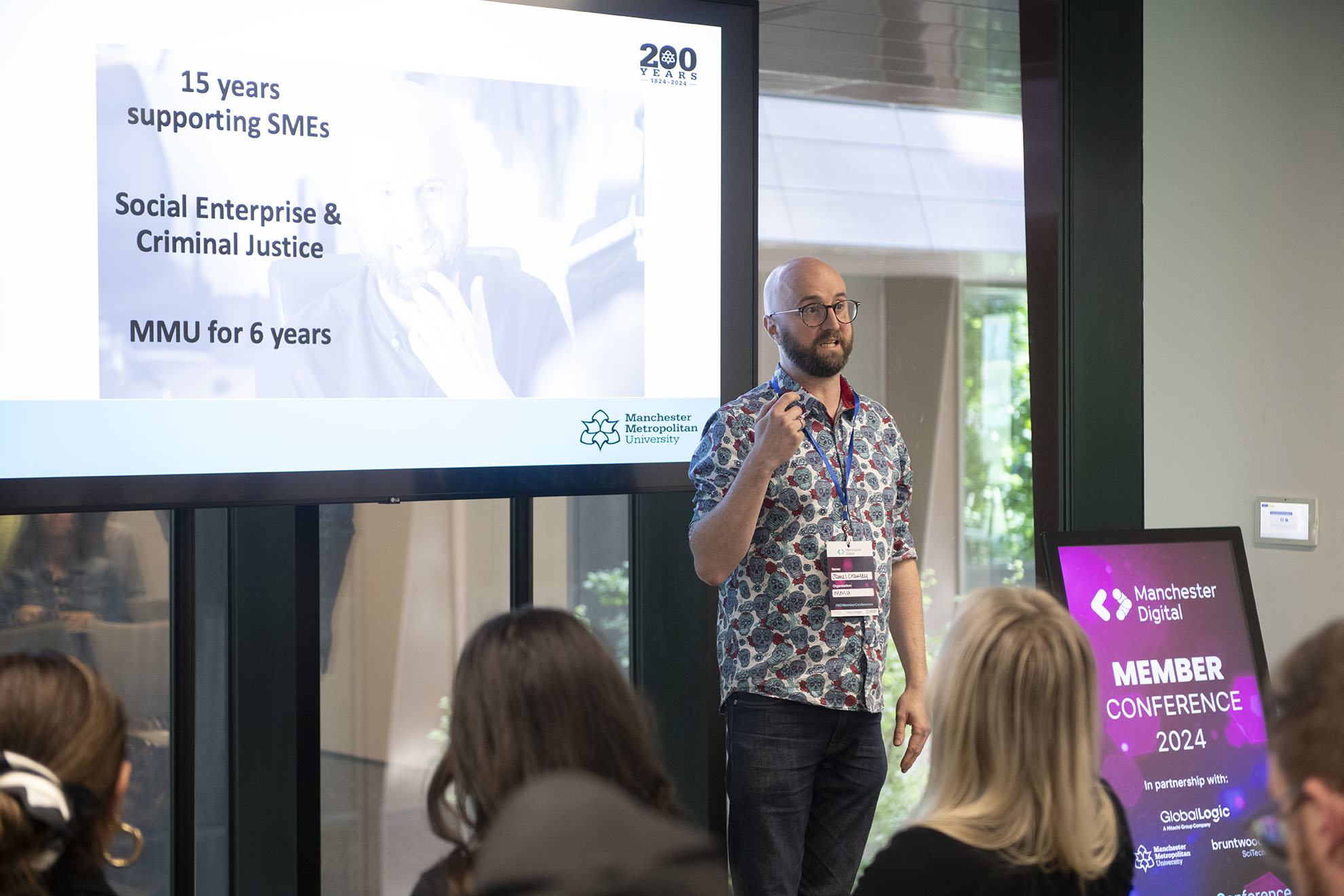
Studio 2: "AI, the Proof of Concept era and barriers to overcome (including AI Assurance)" - Naimuri
Dr Phininder Balaghan, Global AI Capability Lead at Naimuri, led an engaging session that explained what AI is, how businesses can innovate with it (“For AI and Innovation to succeed, we must work collaboratively. For AI and Innovation to succeed, we must work collaboratively“), the dreaded Valley of Death (between innovation and operationalisation), and finally the importance of AI assurance, concluding that ““Assurance should be at the forefront of everything you do when it comes to AI.”
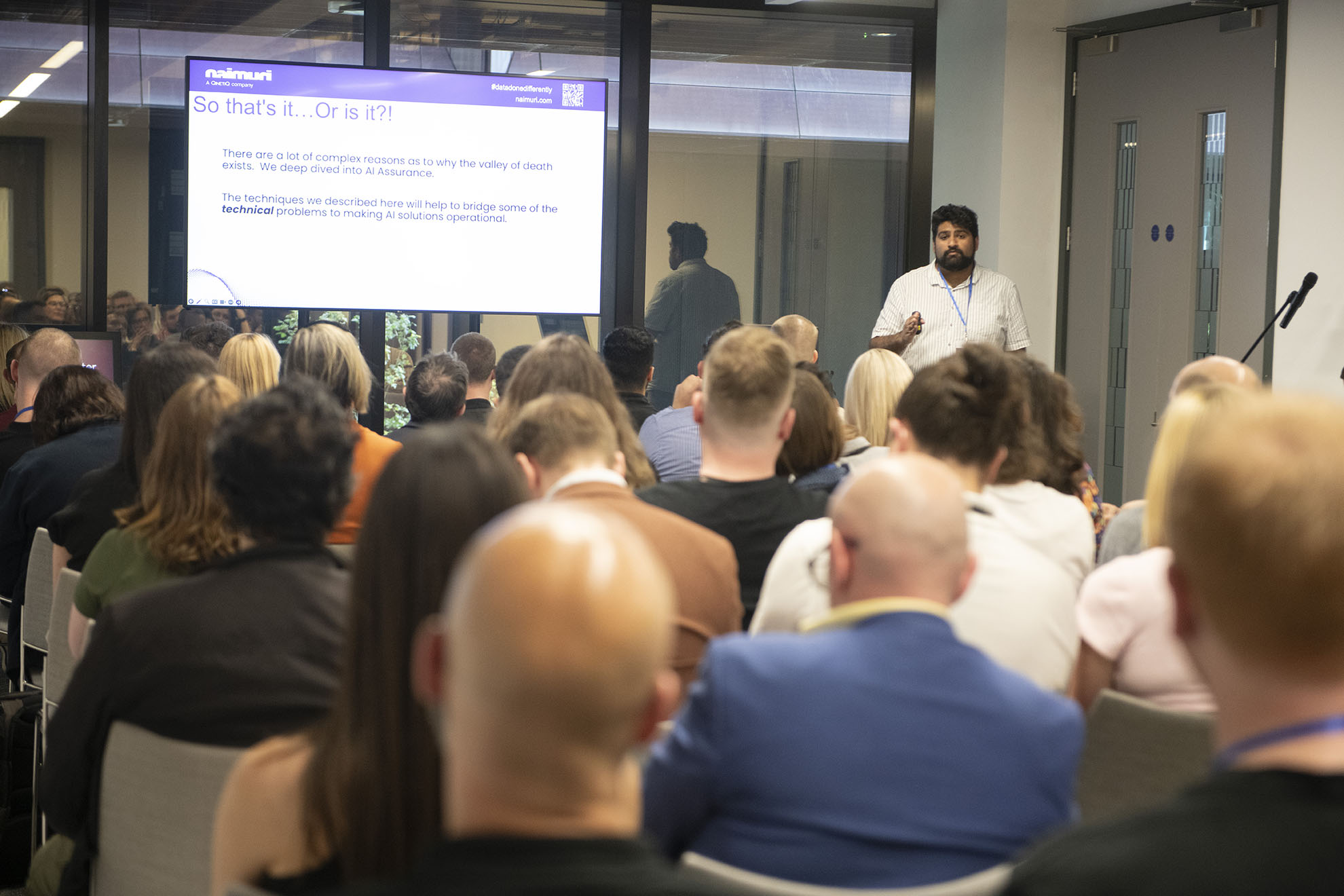
Studio 1 - "Use it or lose it: How the DRCF AI and Digital Hub pilot can help you innovate with confidence" - DRCF
Sarah Meyers, Group Manager and Euan Burke, Principal Policy Advisor, from the Digital Regulation Cooperation Forum (DRCF) AI and Digital Hub, talked us through their service, which is a collaboration through the four main regulatory bodies in the UK. They offer advice to increase confidence in innovators in bringing their AI product or service to market. Sarah explained, “We want to make sure the UK is one of most innovation-friendly landscapes to do business in.”
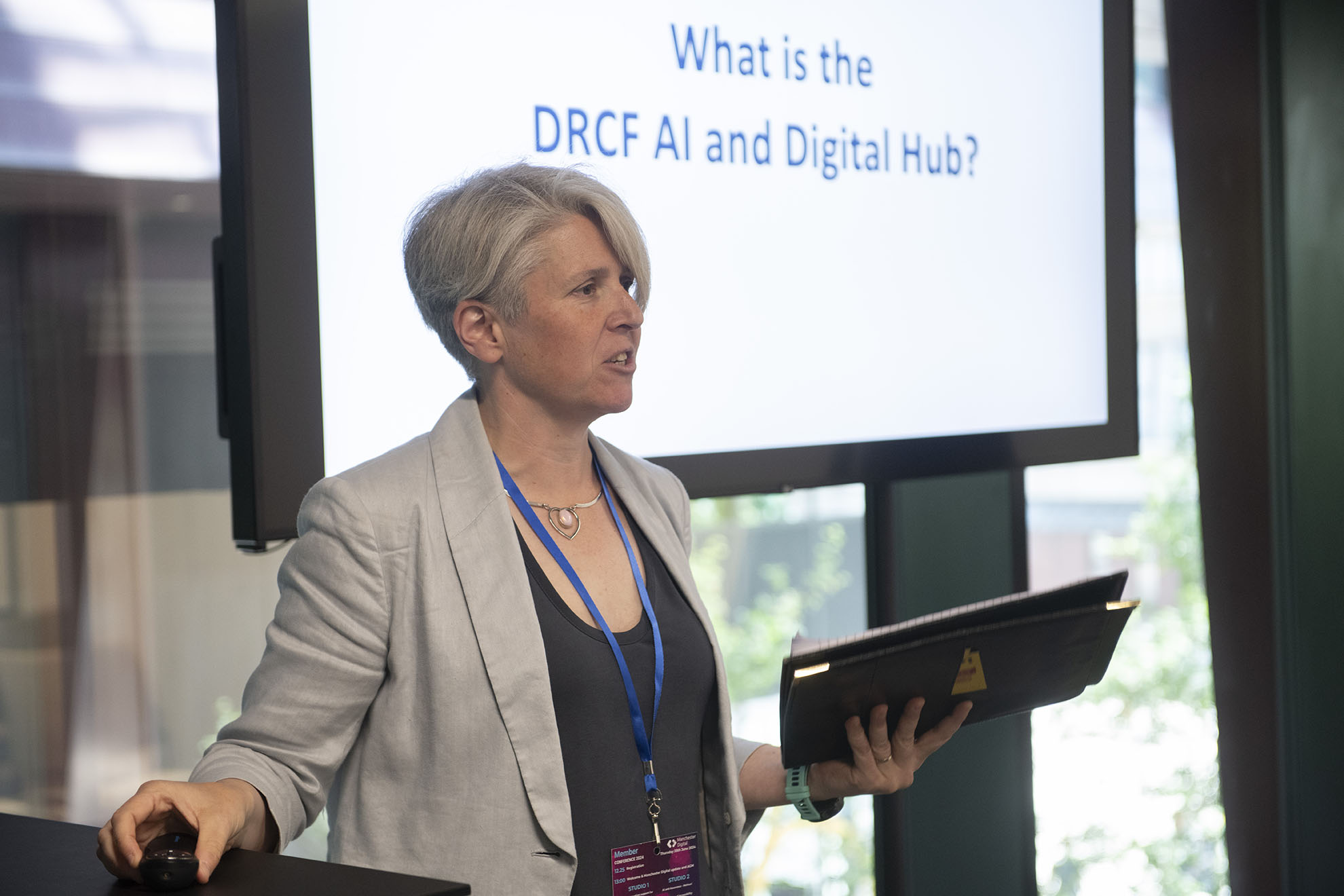
Studio 2 - "Web accessibility – What it is and why it’s important" - Code Computerlove
Alex Clapperton, Senior Front End Developer at Code Computerlove discussed what we mean by accessibility (the practice of making your websites usable by as many people as possible) and why we should do it, suggesting because it’s the right thing to do, it improves SEO, and importantly, because it’s the law! Alex also offered some tips for developers to help make websites more accessible, including using semantic HTML, using ARIA (but used well!), using tools to test what you build and working with designers at every stage of the process.
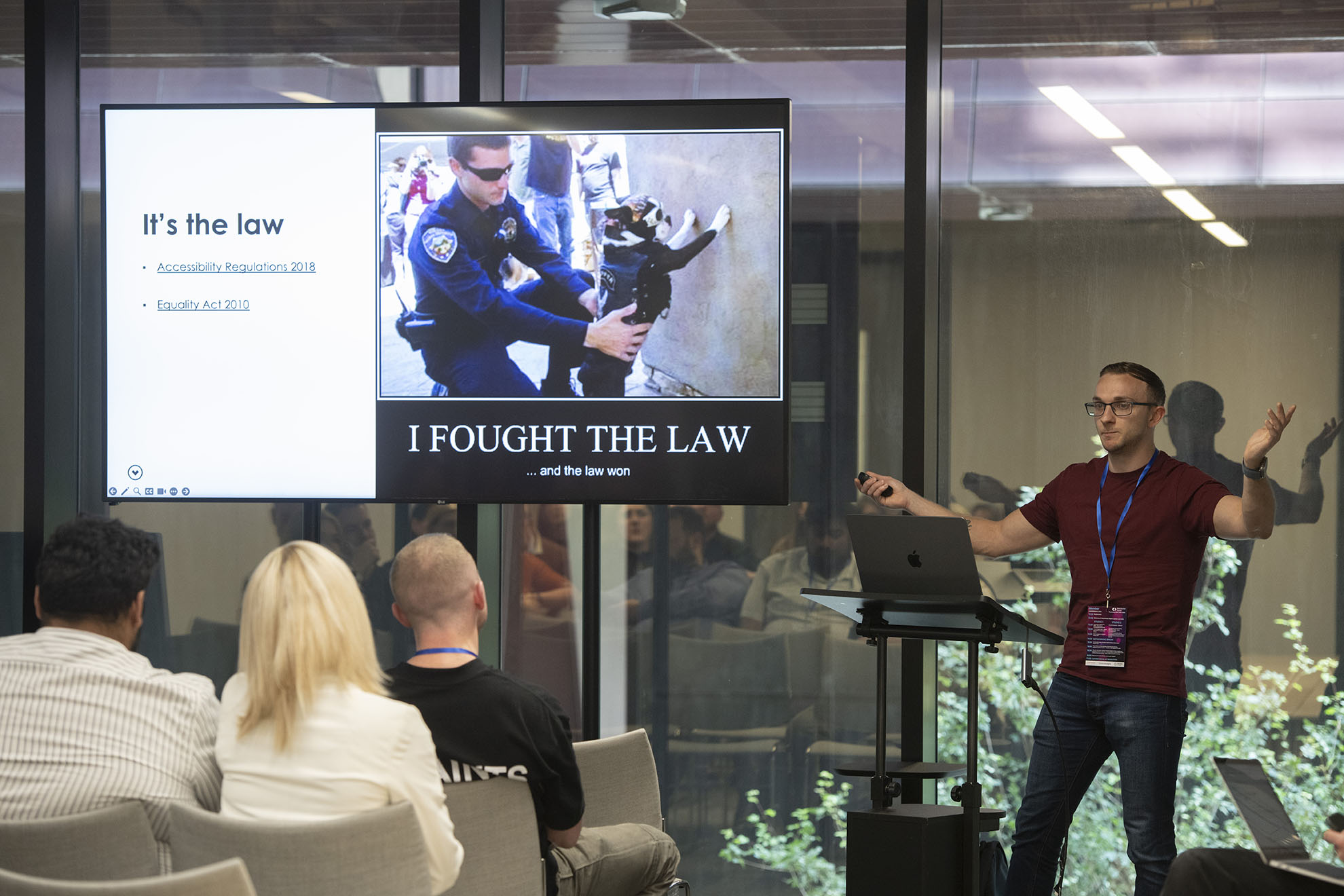
Studio 1 - "Can we deploy AI safely?" - Fuzzy Labs
Matt Squire, CTO at Fuzzy Labs, gave an extremely interesting talk around how businesses can employ AI safely, and a number of different ways to think it through. He asked what duty of care does an engineer have in deploying their AI product, and how to make them safe, and introduce safety features for the end user and also the vendor.
He gave a case study around using a Large Language Model to create a mental health service, and gave examples of what issues could arise, such as giving out wrong information accidentally, or even with malicious intent.
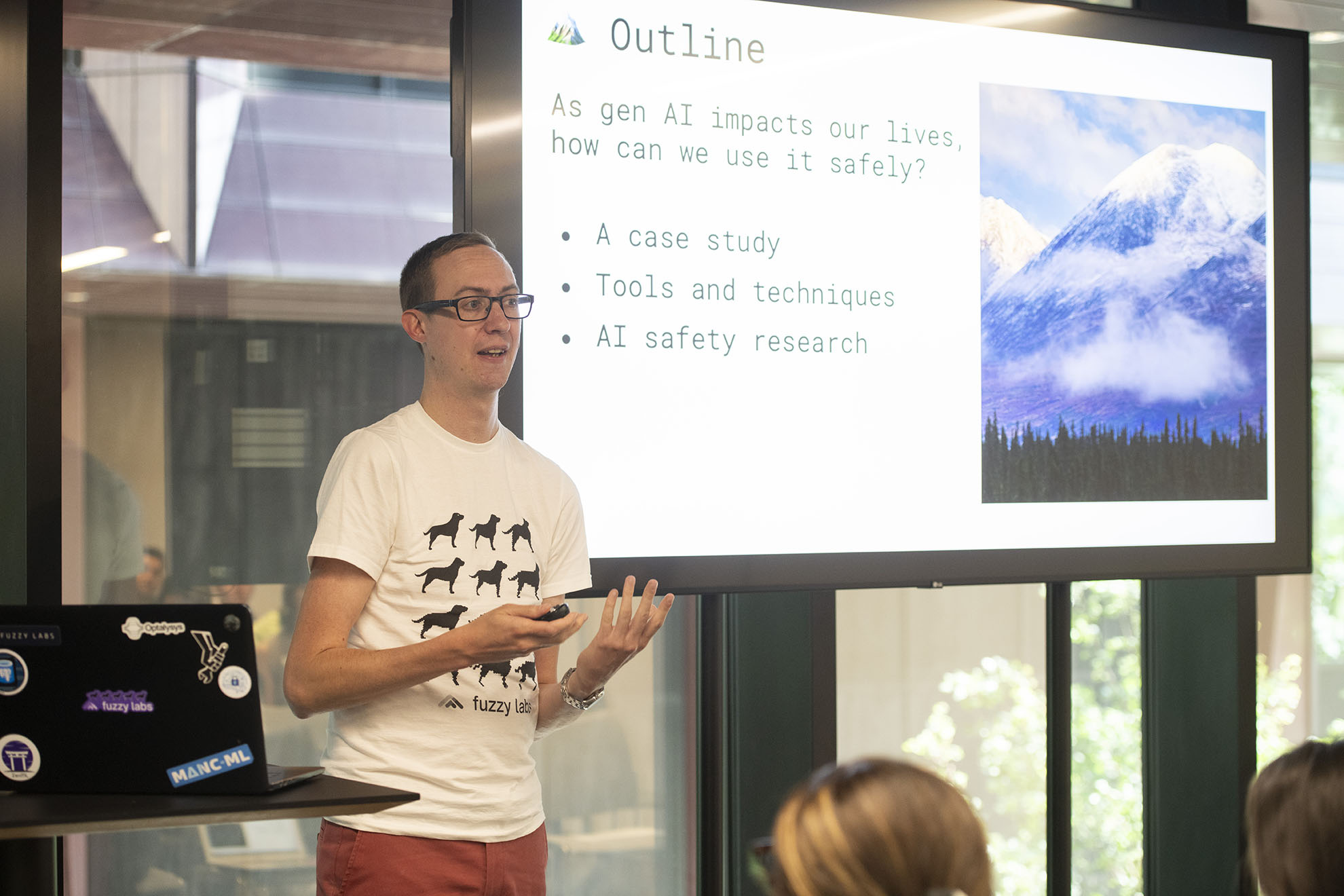
Studio 2 - "Gender & Generative AI: An Investigation into Gender Bias in Text-Based Generative AI Tools" - 6point6
For the final session in Studio 2, Isobel Daley, Associate Director - AI at 6point6, shared the fascinating results of her study into gender bias in text based generative AI, and what we can do to fix it. Very little has been done to look into why text based tools show gender bias, but it’s unsurprising given the societal reasons behind gender bias, the significant gender data gap, the pervasiveness of gender stereotypes and the lack of gender diversity in tech. Isobel explained, “Gender bias in Generative AI matters because biassed outputs influence society, reinforce harmful stereotypes and distort the truth”.
In terms of what we can do, Isobel suggested that addressing the symptoms is just a short term fix, and we must address the causes.
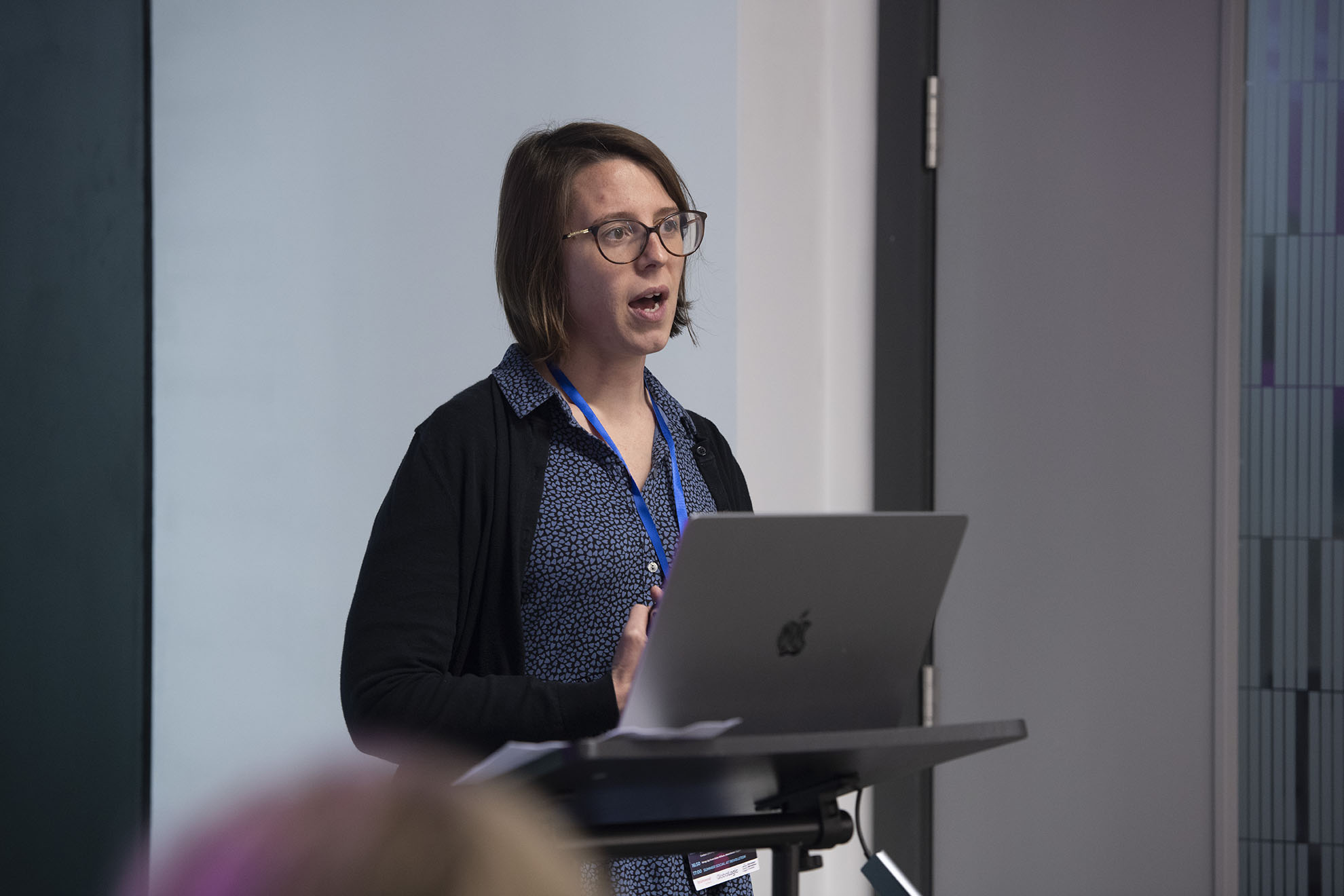
Thanks again to all of our event partners and fantastic speakers.
Our Member Conference is exclusively attended by Manchester Digital members. If you'd like to join the community, find out more here.
